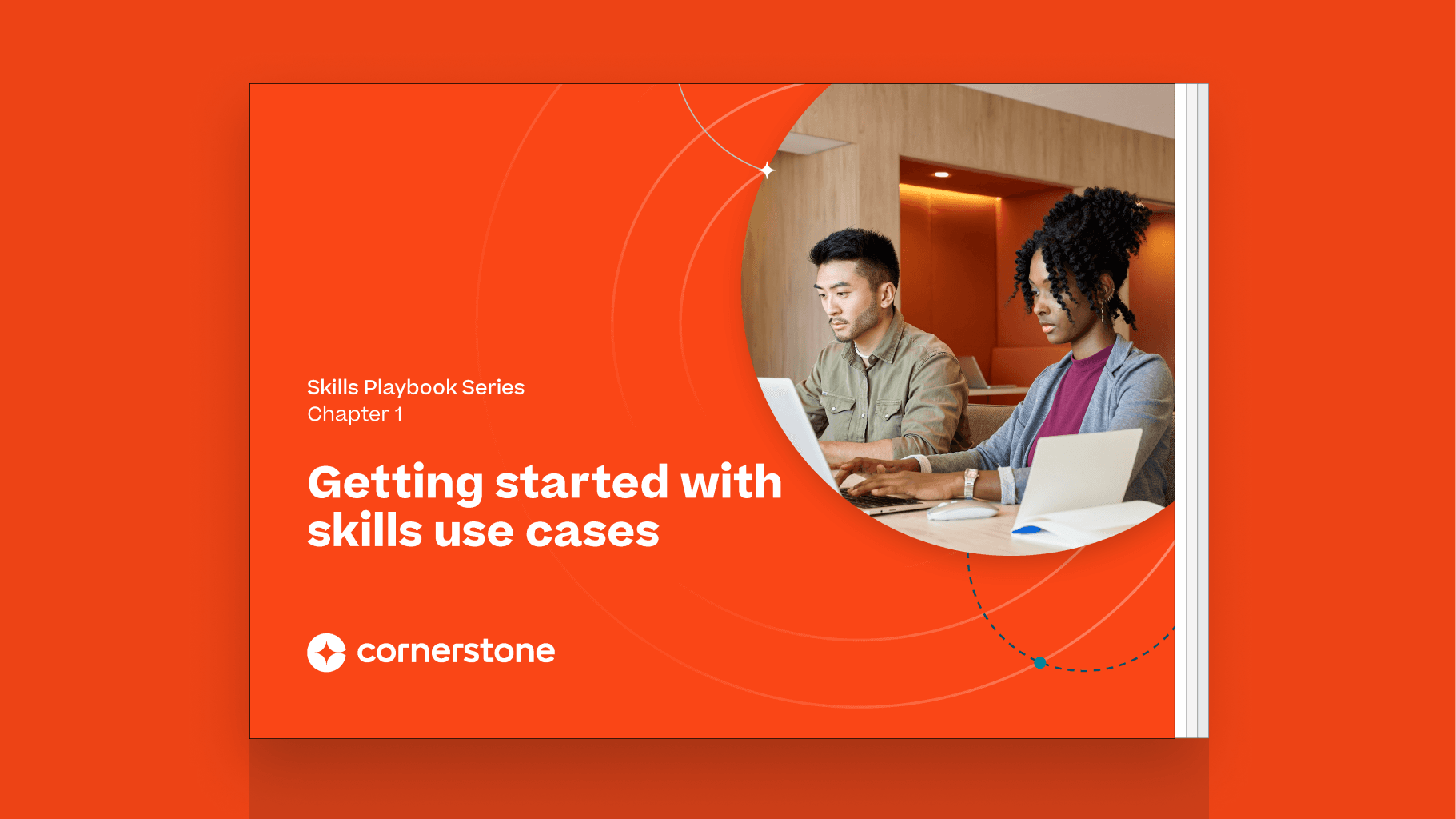In between the hustle and bustle of everyday life, I've been musing more on my transformative career since those early days as a hostess at California Pizza Kitchen. Like a kaleidoscope, the journey's been colorful and prismatic, with deep reflections and changing sequences attributable to both grit and growth opportunities. While I've always been passionate about work, I wouldn't be where I am today without the support of managers who encouraged me to pursue my professional development and try something new.
Internal gig programs are empowering people to explore the new. They have transformed the modern workplace, helping employees to expand their skills, foster cross-functional collaboration and drive team success. These programs offer a unique opportunity for your talent to take on short-term projects or tasks, enabling them to explore new areas of expertise and make valuable contributions.

You may be familiar with the gig economy, a labor market characterized by short-term or freelance work arrangements, where individuals work on a project or task basis for multiple clients or companies. As a result, within the gig economy, workers are often independent contractors or freelancers who can choose their work assignments and schedules.
While the gig economy grants individuals flexibility in working with multiple clients, internal gigs allow employees to tap into their full potential and actively shape their career development within your organization.
Experiential learning is crucial in unlocking employees' full potential within an organization. While the gig economy offers flexibility and diverse experiences, internal gigs provide a unique opportunity for individuals to actively shape their career development within an organization. By engaging in internal gigs, employees can gain hands-on experience that brings fresh insights and ideas to their current roles.
At Cornerstone, we conducted our own internal gig program. Cornerstone Gigs allows employees to participate in short-term assignments outside their usual department. Our employees engage in skill-enhancing projects and involve participants from various organizational roles, regions and divisions — demonstrating the power of skill adjacency and cross-functional collaboration.
Now that you know how Cornerstone approaches internal gigs, here's more advice on starting and growing your own internal gig program.
Managers are critical in supporting your talent development. But the pressure to meet departmental goals can prevent them from supporting the growth of their highest-performing employees because they worry those people will grow beyond their team. This pressure can cause managers to fall back on the dreaded talent hoarding.
To avoid talent hoarding and get manager buy-in, let managers know they’re not alone if a direct report pursues an internal gig. Encourage managers to delegate tasks to other team members if one person is taking on a new project or gig. Identify what can be deprioritized if an internal gig is being prioritized.
On the flip side, encourage managers to tap into the internal gig program to gain additional support for new initiatives or to fill gaps on their teams, such as when a team member goes on parental leave. These flexible solutions for managing workload fluctuations empower employees to expand their skill sets, gain exposure to new challenges and develop a deeper understanding of different areas within the organization.
Managers who embrace internal gig programs set aside time with their employees regularly to better understand how the internal gig project is going, what the employee is learning and how the employee is making a cross-functional impact.
Research shows that a supportive manager who provides career guidance and growth opportunities can significantly improve employee satisfaction. Additionally, providing coaching and mentoring support to managers can help them navigate the transition and embrace gig program opportunities.

Starting with a small-scale gig program allows you to pilot and refine the process before expanding. This approach provides an opportunity to learn from early experiences and make necessary adjustments. Successful implementation cases and research highlight the advantages of starting small, including improved program effectiveness and reduced disruption to existing operations.
You can develop practical steps and scaling strategies as the gig program gains traction. According to John Boudreau, professor and research director at USC Marshall School of Business, Center for Effective Organizations, the ability to see career development as boundary-less opens the door to identifying that talent exists everywhere, opening up opportunities for various departments. This perspective enables you to spark change and adopt growth strategies that inform the expansion process, ensuring that internal gig programs align with your organization’s goals and evolving workforce needs.
One tool that can be incredibly helpful for enabling gig programs is a digital marketplace for employees to find projects, gigs, learning pathways, mentorships and open roles. At Cornerstone, we will soon raise the curtain on the Opportunity Marketplace to feature our gig opportunities, which enables our employees to discover these valuable growth experiences. By leveraging this platform, employees will have access to a wide range of opportunities in real-world scenarios that enhance their expertise and provide them immediate tangible recognition of their participation by granting them the skills they earned once they complete a gig. Opportunity Marketplace uses AI technology to identify applicable opportunities for every employee at our company and connects them to learning pathways, mentorships and more to help them develop and grow.
This autonomy is essential for fostering a sense of ownership and satisfaction among your people. Democratizing access to learning opportunities is critical to successful internal gig programs. Research shows that employees prefer self-service technology over conversations with managers when exploring career opportunities.
Additionally, offering volunteer gigs within the program allows your talent to contribute to social causes while expanding their skills. By creating a unified platform that enables talent to explore development opportunities independently, organizations foster a culture of transparency and empowerment, where learning and career growth are accessible to all. This approach allows your people to pursue paths that align with their interests and aspirations.

Always praise employees who participate in internal gig programs because it’s crucial for their engagement and the initiative’s overall success. Research consistently demonstrates the positive impact of recognition on employee motivation and productivity who adopt effective reward practices to acknowledge the achievements of gig participants. For example, highlighting successful gig projects during team meetings or publicly commending employees’ contributions can create a sense of pride and accomplishment. Additionally, creating a platform for sharing success stories and showcasing the impact of internal gigs can foster a culture of innovation and collaboration.
By leveraging real-time skills data, you can utilize talent marketplace technology like Cornerstone Opportunity Marketplace to enhance employee recognition processes. This allows your organization to tap into its internal talent pool, quickly identify qualified candidates for different positions, reduce the time and effort required for traditional job postings and sift through applications. Skills learned and earned in the Opportunity Marketplace will immediately be recorded and rewarded inside an online skills passport. Instant access to opportunities and recognition for employees’ contributions saves your company resources, reinforces the value of internal gig programs and enhances employee retention.
Internal gig programs put your people in the driver’s seat of their careers, where they can chart multiple pathways to their next dream role. By integrating internal gigs within your organization’s current talent management strategies, you can cultivate a learning ecosystem that continuously evolves and empowers individuals to take ownership of their professional growth, adapt to dynamic business environments and make meaningful contributions toward an organization’s success.
Shout out to all those early managers who urged me to pursue professional development and explore new horizons. Their guidance has been instrumental in my success, and it serves as a powerful reminder of the significant impact that nurturing environments can have on one's career trajectory. As I continue this ever-evolving journey, I remain committed to inspiring others to embrace their own kaleidoscopic paths and seize the amazing opportunities that lie ahead.

